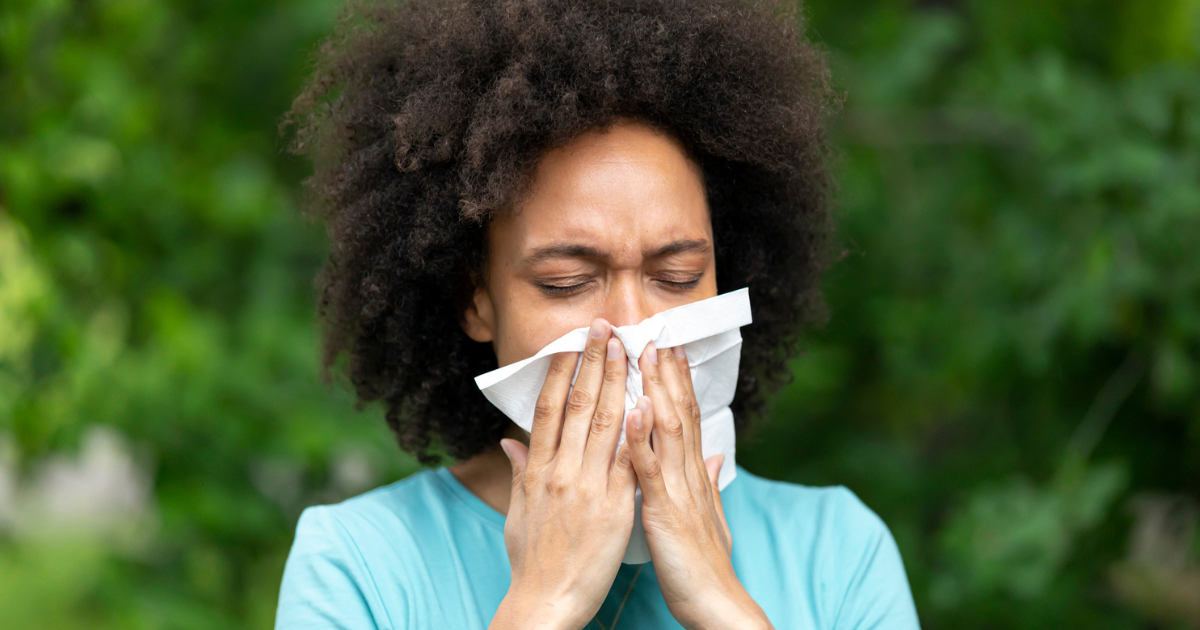How to determine if you have a cold or allergies

How do I know if my condition is due to allergies or a cold?
The symptoms can seem very similar. The key is the pattern of those symptoms.
The common cold is caused by a virus, the rhinovirus, and tends to occur in spring, late fall, or early winter. The cold virus can come from anywhere; from someone sneezing, coughing, or from germs on a doorknob.
You get a cold when you’re exposed to someone else with a cold – your child, a friend, or that guy sitting next to you in the movie last weekend, the one with the cough. A couple days later, the symptoms start -- congestion, sneezing, headaches, aches, low-grade fever. Your nose is runny, with clear or cloudy drainage. You’re miserable for five to seven days – then it’s gone. No treatment necessary, except maybe an over-the-counter (OTC) product to help you get through the workday and another product to help you sleep.

Seasonal Allergies = Predictable
Allergies, however, are very predictable, says Timothy Knudsen, MD, an ear, nose and throat specialist at Nebraska Medicine. "Every year, it’s the same story," he says. "Spring, summer or fall – the seasons – your symptoms start. You’re itchy, sneezy, drippy, drainy. But there’s no fever. There’s no headache. Those are real signs it’s not a cold."
Allergies hang on until the season is over -- then, they’re gone. But it’s a few months of misery non-stop, unless you take something for it.
What’s triggering your allergy symptoms? It’s different for everyone.
If you have a springtime allergy, you’re allergic to flowering trees and their pollen. People with summer allergies have grasses to contend with -- especially timothy grass, the most common lawn grass. If you or your children have this allergy, the simple act of mowing the lawn is a red flag, because it stirs up those allergens – and hits you every time you mow. In the fall, weeds plague people – especially ragweed and pigweed. If you have these in your backyard and you’re sensitive to them, you’re suffering in the fall.
Around the Clock Allergies
Perennial allergies' like molds, dust mites and pet dander affect many people all the time," Dr. Knudsen says. "It’s hard to escape them. If you have a sensitivity, you feel the symptoms all year long; you’re always congested, always drippy, drainy, itchy."
What You Can Do
OTC antihistamines and decongestants are a simple solution – and you won’t need to see a doctor. But if they don’t work for you – and the allergies are significantly affecting your life – you should be evaluated by an ear, nose and throat specialist.
Allergy testing reveals exactly what you’re allergic to so you can avoid it, if possible. If your child is allergic to grass, for example, he shouldn’t be the one mowing the lawn.
"After we identify the allergy, we can prescribe medicine that will take away the misery," Dr. Knudsen says. "The medicine might have the same name as the OTC version, but it will be stronger. We also suggest other therapies -- nasal steroids, nasal washes, nasal irrigation."
Bottom line, try to avoid the allergen that is affecting you. Avoidance is more important than medicine, because it eliminates the source of misery.


